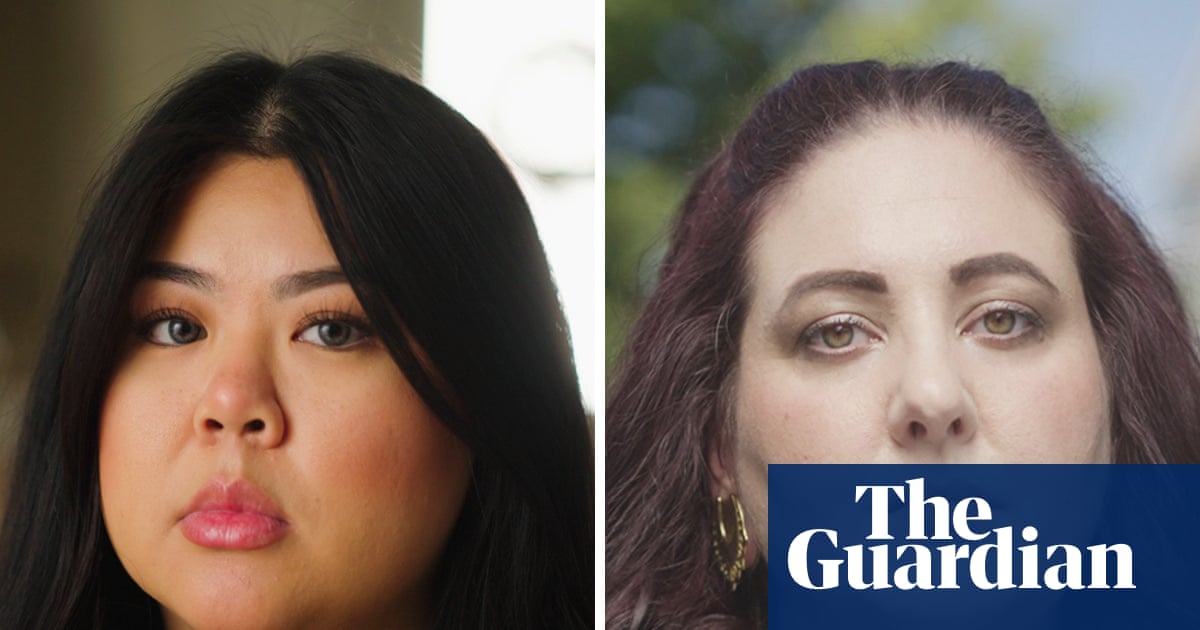So, to quote Lily Allen – who the fuck is Madeline? As mysteries go, this one didn’t seem to last long. On Friday, Allen released her new album West End Girl, which appears to concern her divorce from US actor David Harbour, with its highly detailed evisceration of an open marriage destroyed by a husband’s emotional affair with a woman called Madeline. By Sunday, the press had already declared they’d found Madeline: the Mail on Sunday printed an interview with a woman claiming she and Harbour had had a relationship. “Of course I’ve heard the song,” they reported her as saying. “But I have a family and things to protect … It’s a little bit scary for me.” (Harbour, for his part, has not responded to the album’s contents or to the Mail’s claims.)
On the song Madeline, Allen (or her character) sings about messaging a woman her husband has been sleeping with, explaining her worries that emotions are now involved: “We had an arrangement / Be discreet and don’t be blatant / There had to be payment / It had to be with strangers / But you’re not a stranger, Madeline.” She then recites text messages sent by Madeline – “He told me you were aware this was going on and that he had your full consent / If he’s lying about that, then please let me know” – which the Mail claims were pulled from real messages.
In interviews, Allen has said West End Girl references things she experienced in her marriage “but that’s not to say that it’s all gospel”. She told the Times that Madeline is “a fictional character” and also a construct of several people – an explanation that sounds legally advisable and suggestive that more people may yet come forward to declare themselves Madeline. (No, I’m Spartacus!) None of this is glorious. All of it is compelling.
Compare Madeline, then, to the story of Juline Whelan, a red-haired Canadian woman who came forward in 2016 to identify herself as the possible inspiration for Dolly Parton’s 1972 song Jolene, pop’s ultimate other woman. Parton herself has told a story about being inspired by a fan who approached her for autograph: “I said, ‘you’re the prettiest thing I’ve ever seen’. She had red hair, green eyes and fair skin. And I said ‘what is your name?’ and she said ‘Jolene’. I said, ‘I’m gonna write a song about you and if you ever hear it, you’ll know it was about you.’”
But Whelan was just 10 when she approached Parton for a signature, which is far less alluring than the singer’s other explanation – that Jolene was inspired by an unnamed red-haired bank teller who would flirt with her husband whenever he went into the bank. A great story for a pop song – whereas Whelan just found her possible link to the track annoying, telling CBC: “She’s a hussy, man … what little kid wants to be ‘Jolene, don’t steal my man’?”
Think back to the fervour that greeted Beyoncé’s 2016 album Lemonade and its many references to infidelities, which some of her fans speculated were about her husband Jay-Z. The most famous lyric in Sorry – about “Becky with the good hair” – immediately triggered an online witch-hunt to find the real Becky. Beyoncé remained tight-lipped; the song’s cowriter Diana Gordon called all the speculation “so silly”, adding: “In what day and age from that lyric do you get all of this information? Is it really telling you all that much, accusing people?”
Sometimes it is better to not know, and just enjoy the mystery instead. Carly Simon, regrettably, revealed one of three male inspirations behind You’re So Vain (Warren Beatty) after decades of mutually enjoyed speculation. Ed Sheeran left so many details in Don’t that fans quickly assumed it was about Ellie Goulding; Taylor Swift, meanwhile, barely hides which ex she’s singing about, hooking fans with a constant sense they can spot the truth. Alanis Morissette, though, has never revealed who her splenetic You Oughta Know was about, sustaining the intrigue while also making it a more universal song.
Whatever the truth or fiction, West End Girl has hit a nerve. It could just be our appetite for eye-watering gossip about a famous singer and her actor husband, sure – but it also reflects a new reality that married women (and men) are now facing, one where non-monogamy is becoming more common among the monogamous. Where Parton’s song was a desperate plea for a beautiful, flirtatious woman to respect her marriage and stay out, Allen’s songs tell the story of a wife who knows her husband is having sex with other women, and even signs off on it – but hates the possibility that he’s emotionally invested enough to do things like play tennis with them. “You’re just a little boy looking for his mummy,” she sings on the final track; Madeline, whoever she is, can clearly have him if she wants.

 3 months ago
53
3 months ago
53

















































